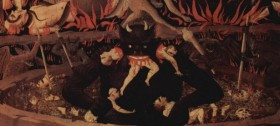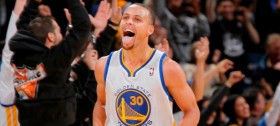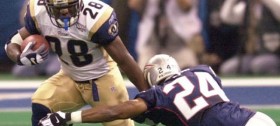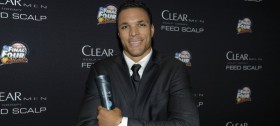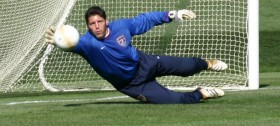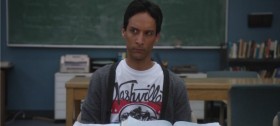Tony Meola Interview
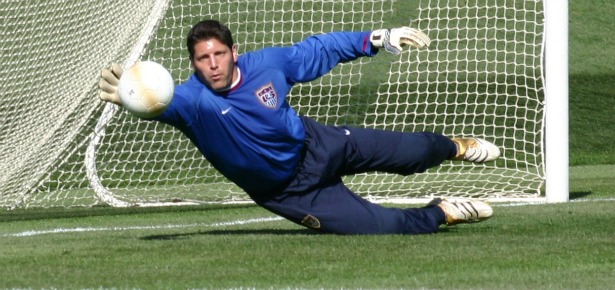
If you’re old enough to remember when the US hosted the 1994 World Cup, you know Tony Meola. The former US National Team goalkeeper made 100 appearances for the national squad between 1988 and 2006. Born and raised in Jersey, Meola and his larger-than-life mulleted/ponytailed persona was one of the first true soccer superstars in the States.
Meola was a foundational stud who helped launch Major League Soccer in the US. He’s an Italian-American who grew up loving soccer (his pops Vincent played reserve fullback for a second division team in Italy), but Tony also excelled in basketball and baseball. Dude was even drafted by the Yankees. Meola is an engaging guy. He has an awesome radio show called Counter Attack Radio and he also plays the drums.
I caught up with Tony last week when he was in Denver on March 21 when he surprised members of the Future Soccer Academy by hosting an Allstate “Good Hands F.C.” Clinic that included free gear and tickets to the US v. Costa Rica blizzard match that took place on March 22. Tony and I discussed the Allstate Clinic future prospects of the USMNT, racism in soccer, the fact that all goalies are a little bit nuts, the ‘94 World Cup, the birth of the MLS, drummers and a whole lot more. Here’s the interview:
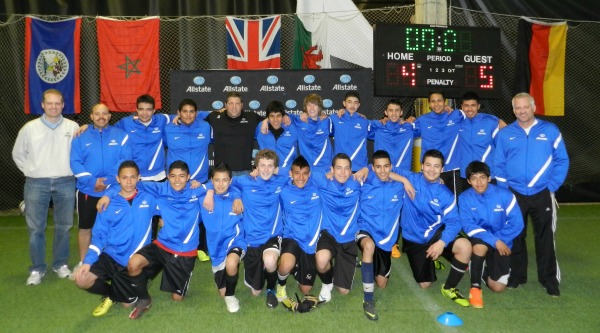
CS: So let’s start with the Allstate Good Hands FC Clinic. Tell me what that’s all about.
TM: Yeah. So Allstate is in their third year of sponsorship with both Major League Soccer and the US National Team. We get to go around the country. I’ve been with the program all three years now. Essentially what we do is the night before a game, we go into the community and we barge in on a practice, which has all been set up through the coaches. We give them a clinic and then ultimately we do some shootouts and we give some prices away and all that kind of stuff. And then at the end everyone comes in and everyone gets a gift from Allstate which is a bag with basically everything that they need for the upcoming season. Literally it’s a group that’s in maybe a little bit more need than some other groups for uniforms, sweat suits, soccer balls, training gear for the coaches. Ultimately, at the end, they’re given tickets to tomorrow night’s game. And in this case, it’s the US-Costa Rica game.
CS: Oh nice. That sounds cool.
TM: Yeah it’s really cool. It’s a really cool night. Allstate does a great job.
CS: So why aren’t there more youth academies in the US? Whether they be from MLS teams or the National Team. You see places in Europe where every club and country has some type of academy where they train these young players. We have such a strong youth soccer culture, but we don’t necessarily put a lot of investment into that development and bringing them forward.
TM: We have 100 academies in the country. All MLS teams have them now, as of finals last year. Major League Soccer has committed above and beyond what the club teams are required to commit to the programs now. It has committed upwards of 20 million dollars to the program. One of the primary focuses is to continue to develop youth soccer players. That’s the only way we’re going to continue to grow in this country.
People started screaming about it a couple years ago when they put the academy program in, but it’s not something that is going to happen overnight. It’s not something that was considered their first priority when they put the league together, but it’s certainly a priority right now. It’s going to take a little bit of time to implement it fully, but from what I’ve seen, everybody is taking steps in the right direction.
CS: You were a foundational contributor to the whole birth of Major League Soccer in ’96. How do you think the league has progressed since then and can they do more to gain exposure and increase popularity?
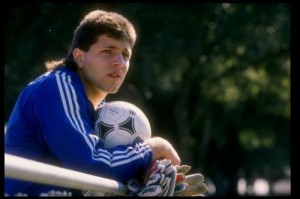 TM: Well certainly there is more exposure, much more exposure. Social media now exists, which certainly didn’t when we started. That’s huge. The television deals that they have are different than the deals we had, you know? So it continues to grow, and that was the goal for everybody. First we had to figure out, how do we grow it in the right way. And then once we had, do we have the resources to grow? Is there the funding in US Soccer to grow it? And they’ve come about on all of these things. Do I think it’s the end of the growth? No, I think there’s still so much more. And I think everyone agrees that there’s still a ways to go, but I also think everybody is happy with the direction that it’s going.
TM: Well certainly there is more exposure, much more exposure. Social media now exists, which certainly didn’t when we started. That’s huge. The television deals that they have are different than the deals we had, you know? So it continues to grow, and that was the goal for everybody. First we had to figure out, how do we grow it in the right way. And then once we had, do we have the resources to grow? Is there the funding in US Soccer to grow it? And they’ve come about on all of these things. Do I think it’s the end of the growth? No, I think there’s still so much more. And I think everyone agrees that there’s still a ways to go, but I also think everybody is happy with the direction that it’s going.
CS: So if we started to see things like time outs or commercials in soccer, do you think that would attract more advertising dollars and maybe help make the sport more popular and viewable if it had more of that TV exposure?
TM: Good question. It attracts so many different ways to advertise, in soccer. The problem with our sport, and I don’t think we’re going to start it here in America, is it’s 45 minutes of running. That’s the one part of the game nobody wants to see change.
CS: Right.
TM: Everyone wants that to flow. From a coaching standpoint, I’m sure a coach wants to have the ability a couple times to have a time out and make some changes, but that’s the beauty. Coaches get one chance to make things right and that’s halftime. Of course they can make some substitutions along the way, but that’s their one time where they can put their imprint on the game.
CS: You were a key member of the ’94 World Cup team that really helped advance the game in the States. What’s your fondest memory of that whole US World Cup experience?
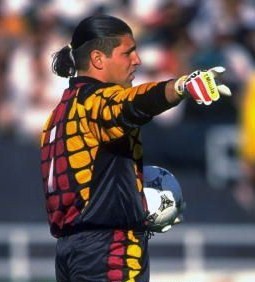 TM: I think the unity of that team. In ’94, I mean we had half the team that played in Europe and half the team that played in the United States. When we got together, the cause was always the same and we knew how important it was. They know how important it is here as well, but we had heard for four years that if we didn’t qualify in 1990, they were going to take the ’94 World Cup away and we knew it was a privilege for us to have it in our country. We understood it and we played as such. Every minute was important to us. Every second we were together was important to us. That’s what I remember about that group. That was never something you had to worry about.
TM: I think the unity of that team. In ’94, I mean we had half the team that played in Europe and half the team that played in the United States. When we got together, the cause was always the same and we knew how important it was. They know how important it is here as well, but we had heard for four years that if we didn’t qualify in 1990, they were going to take the ’94 World Cup away and we knew it was a privilege for us to have it in our country. We understood it and we played as such. Every minute was important to us. Every second we were together was important to us. That’s what I remember about that group. That was never something you had to worry about.
CS: Do you think the USA will win a World Cup in your lifetime?
TM: I sure hope so. It’s hard to say. Even if you take Brazil or Germany or Italy, it’s hard to say if any of those teams will win another World Cup from here on out, in my lifetime. It’s just so difficult to win. There have only been eight or nine countries that have won the World Cup and there’s a reason for that. But I certainly hope so. And we’ve had teams that could compete, the team in 2002, the team in 2010, could all compete with anybody in the world. But you know, you have to get the job done on that day. I’d like to think the answer is a solid yes, but I can’t give you a solid yes.
CS: I gotcha. Do you like what Jurgen is doing with the direction of the National Squad? What do you think the program has to do to take the next step in the international stage?
TM: When I think about Jurgen, for me, he’s going to be –and I say this all the time– he’s going to be judged, and should be judged, on the results.
CS: Right.
TM: Right now he’s under a little bit of pressure. Which, one, I think is good because it shows that people care. If no one cares you never have any pressure. My concern is that sometimes, from reading the federation, he changes the whole program. For me I’d like his concern just to be strictly on the National Team qualifying for the World Cup and progressing that way. Let everybody else worry about development below the national team. As far as the system, I don’t know that the system has changed all that much, if any. I still think it’s about results. That’s what people want to see. With these World Cup qualifiers it’s just vitally important.
CS: The US has such a great track record of producing quality goalies, but it seems that producing that same level of skill with players in other positions has proven a bit more difficult. Why do you think that is?
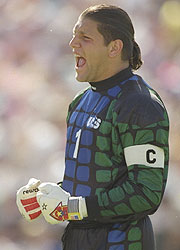 TM: Well it’s an athletic position. I think it’s one of coordination. Our guys generally grew up playing baseball, playing basketball as well as soccer, and are a little bit more well-rounded. Because it’s an athletic position, they can pick it up a lot quicker. We used to have foreigners on our team in multiple positions and we’d play a simple game like basketball or handball and you could tell that their eye-hand coordination was zero. Our field players even, they were good playing basketball, baseball, or whatever else we were playing. So we grew up playing multiple sports, I think it’s good. Eventually you’ve got to concentrate on one to make it to that level, but for the most part I think that’s what’s up with the goal keeping position.
TM: Well it’s an athletic position. I think it’s one of coordination. Our guys generally grew up playing baseball, playing basketball as well as soccer, and are a little bit more well-rounded. Because it’s an athletic position, they can pick it up a lot quicker. We used to have foreigners on our team in multiple positions and we’d play a simple game like basketball or handball and you could tell that their eye-hand coordination was zero. Our field players even, they were good playing basketball, baseball, or whatever else we were playing. So we grew up playing multiple sports, I think it’s good. Eventually you’ve got to concentrate on one to make it to that level, but for the most part I think that’s what’s up with the goal keeping position.
CS: So why did you choose soccer over baseball and basketball? You were pretty accomplished at both. I mean you were drafted by the Yankees, man. What made you gravitate toward the soccer field?
TM: My goal as a kid was to play in a World Cup. I grew up watching Italy, because of my background and watching Dino Zoff in the 1980 World Cup in goal. That was what I wanted to do, unlike most kids, especially in that era. Now it’s probably not so uncommon to have kids dream of playing in a World Cup, but back then it probably was your second or third choice. For me it was just the thing I wanted to do more than anything, and I was lucky enough to be able to live that dream.
CS: Do you think all goal keepers are just a little bit nuts?
TM: (laughs) It would be hard for me to disagree with you.
CS: (laughs) Nice.
TM: I don’t know if that’s before, during, or after the job. I’m not so sure.
CS: Do you think you could currently help the New York Jets win some games?
TM: No.
CS: (laughs).
TM: (laughs) I don’t think so. I think the range has diminished a little bit, but I still think from 45 yards in I’d be alright.
CS: I know you’re a pretty accomplished drummer, who is your favorite drummer of all time?
TM: I would say Neil Peart from Rush. Just like you always try to be like someone you’re never going to be able to be like. Carter Beuford from Dave Matthews Band. Guys like that. Guys that you can just tell are really good at having fun at what they do.
CS: What do you think can be done about the whole racism in soccer situation? It seems to be pretty rampant and kind of a growing problem.
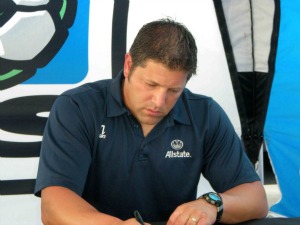 TM: Yeah, unfortunately it is. We have this discussion on our show, it seems like weekly. And it seems like, for whatever reason, in these last couple months it has come to the forefront again. Fortunately we don’t have a lot of it here in the United States. I think we’ve had so much education in the United States, dating back so many years, that kind of helps us. Kids are learning about it in school. I’m not sure what the education is at a young age overseas, but yeah, it’s got to stop. It’s sickening every time I hear about it and every time we have to talk about it. We talk about the same thing, when is it going to end? When are people going to learn? When are they going to stop being so cruel to each other? But some people just don’t get it. They just don’t get it. And the scary part is we have guys on our show that have played 20 years ago, played overseas in different places, they’ll come out and talk about how bad it is now. They’ll give us horror stories about how much worse it was when they were playing. Any offence in that regard is disgusting to me, but to listen to some of the stories they tell, it just blows my mind.
TM: Yeah, unfortunately it is. We have this discussion on our show, it seems like weekly. And it seems like, for whatever reason, in these last couple months it has come to the forefront again. Fortunately we don’t have a lot of it here in the United States. I think we’ve had so much education in the United States, dating back so many years, that kind of helps us. Kids are learning about it in school. I’m not sure what the education is at a young age overseas, but yeah, it’s got to stop. It’s sickening every time I hear about it and every time we have to talk about it. We talk about the same thing, when is it going to end? When are people going to learn? When are they going to stop being so cruel to each other? But some people just don’t get it. They just don’t get it. And the scary part is we have guys on our show that have played 20 years ago, played overseas in different places, they’ll come out and talk about how bad it is now. They’ll give us horror stories about how much worse it was when they were playing. Any offence in that regard is disgusting to me, but to listen to some of the stories they tell, it just blows my mind.
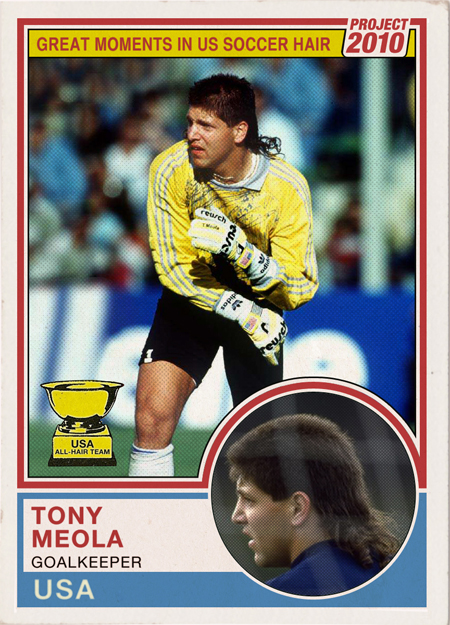 CS: Last question for you. I’ll try to end it on a little bit of a lighter note here. Do you think ponytails will ever make a comeback on the pitch?
CS: Last question for you. I’ll try to end it on a little bit of a lighter note here. Do you think ponytails will ever make a comeback on the pitch?
TM: Oh, that would be my dream.
CS: (laughs)
TM: Even more than the prettier ponytail, would be if the mullet came back.
CS: Oh, that might be asking too much (laughs).
TM: That might be, but hell, bell bottom pants came back for a little, right?
CS: Anything is possible (laughs).
TM: (laughs). Maybe one day. Maybe one day…
Related Posts
| Print article | This entry was posted by Chris Stout on March 28, 2013 at 1:27 pm, and is filed under Sports. Follow any responses to this post through RSS 2.0. Both comments and pings are currently closed. |
Comments are closed.







